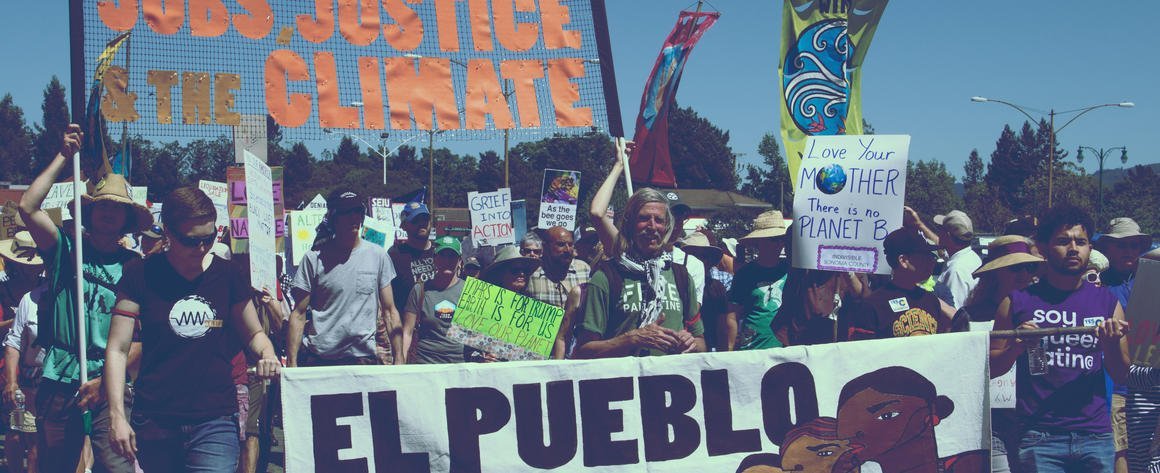Broad-Based Ownership Models as Tools for Job Creation and Community Development
As cities wrestle with the growing challenge of wealth inequality, more and more leaders are looking to broad-based ownership models as tools to create jobs and build community wealth.
A Common Platform: Reimagining data and platforms
On October 20, 2020, the US Department of Justice filed an antitrust action against Google, the first step in what might be one of the biggest anti-monopoly cases of this century.
A History of Nationalization in the United States: 1917-2009
Climate change is an unprecedented global social, political, and economic crisis. Without drastic action, the United States will likely experience rising sea levels that will regularly flood major cities, more intense weather patterns that will destroy homes and businesses, longer and deeper droughts that will disrupt agricultural production, and an increase in disease that will put stress on the healthcare system.
Educate and Empower: Tools for Building Community Wealth
Our new report Educate and Empower, authored by Keane Bhatt and Steve Dubb, draws on case studies of 11 different community economic development initiatives from across the United States to highlight a diverse set of powerful answers to these critical questions.
Constructing the Democratic Public Bank: A governance proposal for Los Angeles
In October 2019, the state of California passed AB-857, a historic law to charter 10 local public banks. Efforts to incorporate these public banks are now underway across the state.
A “new direction”: Rediscovering community wealth building in an age of gentrification
Gentrification is a sinister contagion spreading through Black communities across America. After years of economic oppression and deprivation, the Black community now stands at the edge of perhaps the greatest displacement since the Great Migration.
Right To Own: A policy framework to catalyze worker ownership transitions
This report explores the “right to own”—giving workers the right of first refusal anytime their workplace is up for sale—as a strategy to massively scale up employee ownership in the economy.
Quantitative Easing for the Planet
Across the political spectrum, conventional wisdom holds that technology and finance remain the greatest obstacles to moving society beyond fossil fuel dependency. Yet, neither is the real reason why progress on climate action has stalled for decades.
Taking climate action to the next level
For over forty years we have known that avoiding disastrous climate change requires breaking fossil fuels’ hold on our economy and way of life. Yet, throughout all that time, debate, negotiations, and actions have fallen short in triggering, never mind managing, an energy transition.
Democratic by Design: A new community wealth building vision for the British economy after COVID-19
We are at a historic juncture. If we can secure a transformative and green recovery from Covid-19, the crisis could prove a watershed moment - a break from an unsustainable present and unjust past towards a reparative future anchored in a purposeful, inclusive economy.
Framing the challenges of a next system after fossil fuels
In the paper, Next System Project co-chairs Gar Alperovitz and Gus Speth, together with NSP Executive Director Joe Guinan and Democracy Collaborative President Ted Howard...
Democratizing knowledge: Transforming intellectual property and research and development
The current public health crisis is demonstrating how deficiencies in our approach to intellectual property (IP)—a unique set of rights and protections that applies to the creations of the human intellect—and research and development (R&D) imperil the health, safety, and livelihoods of millions of people around the world.
A US green investment bank for all: Democratized finance for a just transition
In ways unimaginable just a few years ago, public banking and its potential for catalyzing a transition to a green and just future have been catapulted to the center of political and economic debate.
The Crisis Next Time: Planning for Public Ownership as an Alternative to Corporate Bank Bailouts
The next financial crisis is all but inevitable. While its exact timing and severity cannot be predicted, both the accelerating frequency of crises in recent decades and the continued consolidation of the banking sector in an increasingly financialized economy suggest that we should be prepared for a crisis sooner rather than later.
Impact investing and employee ownership: Making employee-owned enterprises part of the income inequality solution
With income inequality in the United States at record high levels, employee ownership is increasingly being lauded as a potential solution to spreading wealth more broadly.
Strategies for financing the inclusive economy
Broad-based ownership models bring substantial benefits to communities and workers, particularly those of low and moderate income. These models are poised for substantial growth as tools for solving the massive problem of economic inequality. In an economy where wages have been stagnant for decades—and a disturbing 40 percent of jobs are now part-time, temporary, or contingent—public interest in models fostering broad-based ownership has grown substantially.
Energy democracy: taking back power
Electric utility (re)municipalization is gaining popularity as a strategy to shift away from a reliance on fossil fuel extraction in the context of combating climate change.
Introduction: The Green Transition and the Next System
When the Global Climate Action Summit convenes in San Francisco on September 12, 2018, one goal will be to affirm that the world beyond the Trumpian miasma is “still in” the Paris Accords. But the Summit seeks also to “demonstrate that stronger commitments are necessary, desirable and achievable.”
The Systemic Roadblocks to Climate Action
The challenge of mounting an adequate response to climate change has to be understood within the context of the larger systemic crisis facing the United States. The 1972 Limits to Growth, published when environmental movements were forming in this country, emphatically explained that our economic system was incompatible in the long term with the health and productivity of our finite planet.
Public Ownership for Energy Democracy
Energy democracy—a new idea from the ranks of community organizers, labor, and renewable energy advocates who see our current energy system as broken and destructive—seeks to take on the political and economic change needed to tackle the energy transition holistically.




















